I’ve always found people in China to work very hard.
But streets and villages during the Qin Dynasty must have been full of exhausted people–at least until overseers beat them back to work. Come and explore the dark side of Qin Shihuang’s reign.
The man who commissioned the terra-cotta army did everything he could to unify China. But he did too much.
1. He constructed cities, palaces and walls throughout his kingdom. Sights like Ping Yao’s imposing gate (above) became common. Physical exhaustion and stressed family and state finances probably did too. These huge construction projects meant a loss of farm labor, which harmed the economy.
2. Qin Shihuang pushed the empire’s boundaries by initiating military campaigns in Vietnam, southern China and Korea. Chinese culture spread, but garrisons had to pacify people from many new cultures, which weren’t always as peaceful as the people I met in the above photo. Military operations taxed more of the state’s resources, and kept more young men away from the fields.
3. He was obsessively afraid of death. His ministers were afraid to mention it around him. Qin Shihuang was convinced that he could find the elixir of life, and he consumed many resources to discover it. People told him that in the middle of the sea, there are three supernatural mountains where immortals live. Though he didn’t find the immortals, Qin Shihuang established the feng and shan sacrifices, in which he went up Mount Tai in the eastern province of Shandong (above). He thus harmonized himself and the state with heaven and the highest gods.
Meanwhile most people in China were living in humble conditions that greatly contrasted with Qin Shihuang’s extravagant schemes. He wanted to create a greater China, but was out of sympathy with its people.
4. One of his most controversial initiatives was the notorious Burning of the Books. Mark Edward Lewis writes that there was actually no systematic destruction of texts–that happened in 206 BCE, when Xiang Yu tribes from the west sacked the Qin capital and torched the imperial library. But Qin Shihuang wanted to control thought by limiting access to texts, especially Confucian writings. He thus confiscated them and writings from other philosophers from private people and put them in the imperial library. Only government-appointed scholars could study them.
Writers in the Han Dynasty who spread its Confucian ideology said that Qin Shihuang was hostile to scholarship. He wasn’t–he consulted scholars for his sacrifices on Mount Tai, but he wanted to control scholarship so it wouldn’t threaten his ideas of a unified state.
By uniting China for the first time and expanding its borders, Qin Shihuang did what nobody had done before. Perhaps this encouraged him to assume that he could do anything. He was from a distant western state with weaker connections to Confucian teachings, which say that a man’s achievements have limits–they must be in harmony with society.
We marvel at the jaw-dropping breadth of his work, but he died around the age of 50, and a rebellion toppled his dynasty a few years after his death (his son Hu Hai was just as extravagant). But the Han Dynasty which followed consolidated his gains, and took Chinese civilization to new heights.
In the next post, we’ll explore some of the subtler ideas in Qin Shihuang’s program of unification. Its ideology came from traditions which were ancient even then, so we’ll explore the hidden riches behind the terra-cotta army.

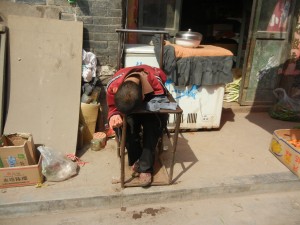
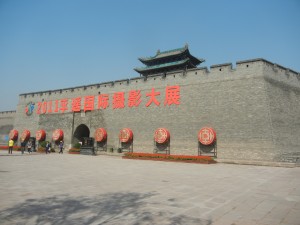
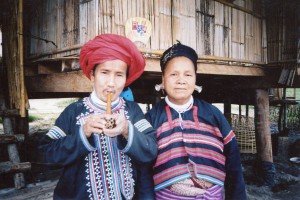
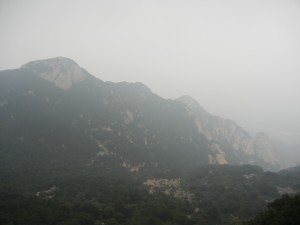
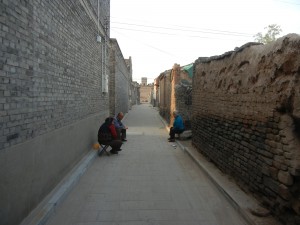
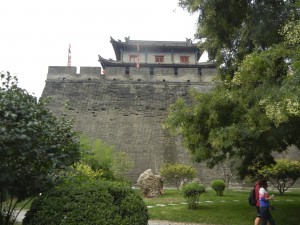
{ 2 comments }
Great write-up! I remember when my Dad and I saw the Terra Cotta Warriors in Xian, China. It was AMAZING there were so many of them all life-sized and lined up ready to scare off indterurs! We even met the man (Mr. Yang Quan Yi) who discovered this 8th wonder of the world. All my pictures were 35mm I’ll have to take them out of my scrapbook and scan them in.
I met him too, and I spoke to him a bit in Mandarin–I thanked him and told him that his discovery was fantastic. He looked up and politely nodded, but didn’t say anything–a good old Shaanxi farmer. I could sympathize with him–at an age when many people retire, he has to be a figurehead and sign autographs. But at least he can enjoy some recognition.
Comments on this entry are closed.